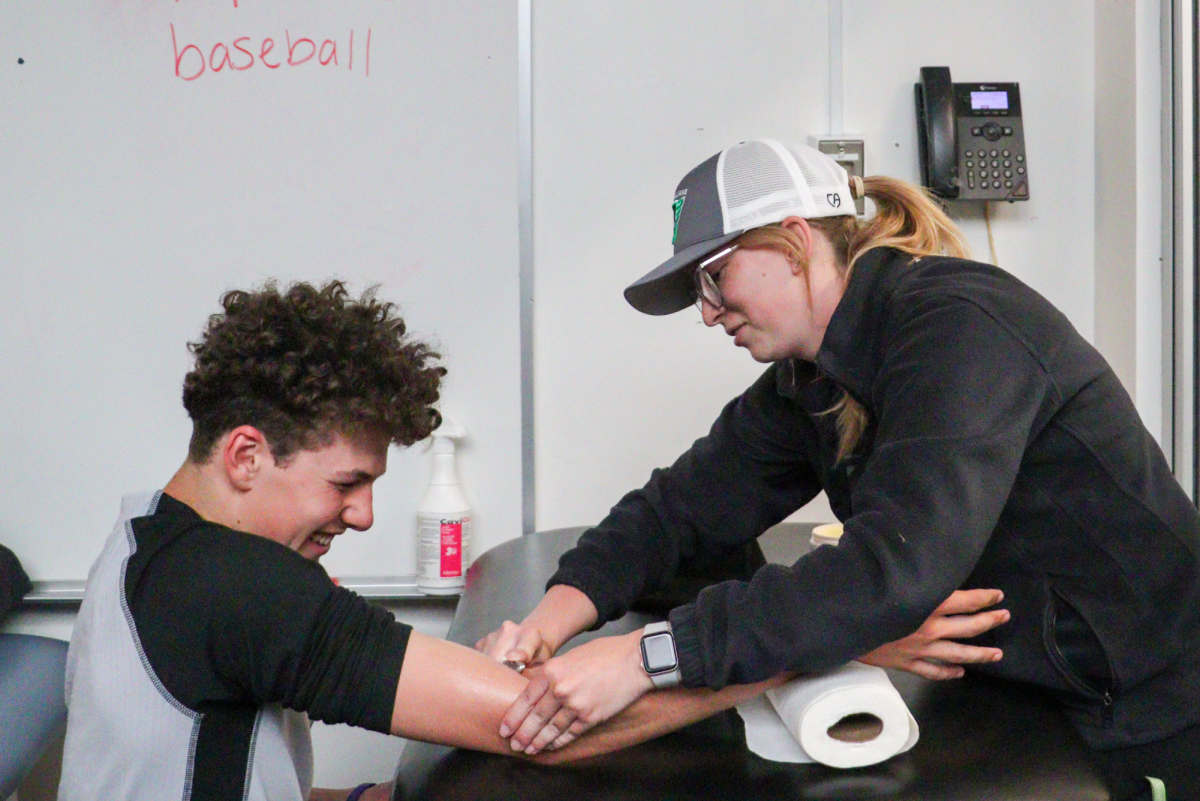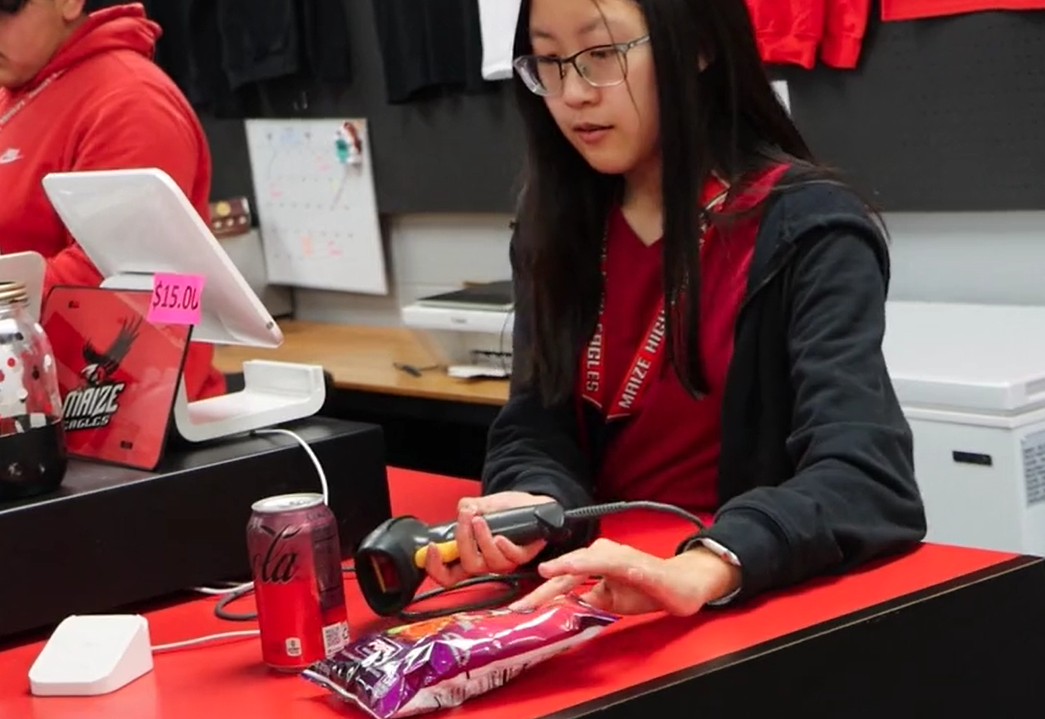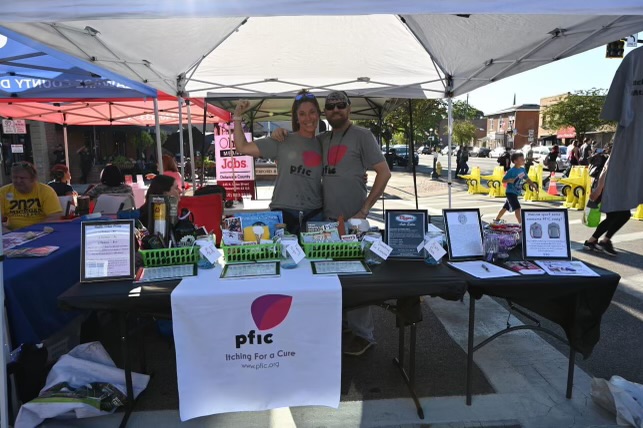Hayes senior Athena Anderson was diagnosed with Progressive Familial Intrahepatic Cholestasis (PFIC) in January of 2023. Since then, she has worked with those in the Delaware community to raise awareness about the disease in the hopes of finding a cure.
“It is so rare because your mom has to have half a gene and your dad has to have the other half and then they have a one in four chance of having a kid with PFIC,” Anderson said.
PFIC is caused by a buildup of bile in the liver, which is unable to be flushed out and results in injury on the inside of the organ.
Symptoms can include jaundice, vitamin deficiencies and the itch, which is the defining trait of PFIC compared to other liver diseases.
“Itching is a severe symptom of [PFIC]. It’s itching to the point where you’re bleeding, you’re ripping off your skin because it itches all over the body, all the time,” Anderson said. “That’s why our motto is ‘itching for a cure’ because the itching is so bad.”
Due to its rarity, PFIC was difficult for medical professionals to diagnose.
“[PFIC] was first discovered in an Amish population in Pennsylvania. [The disease was] given the name of the patient, which is crazy,” William Balistreri, MD., professor at the University of Cincinnati Department of Pediatrics, said in a phone interview. “It was called Beiler disease because it was the Beiler family that had it, and then a second family came along with a different disease.”
As more mutations began cropping up, the Beiler name was changed to PFIC. Today, six types of PFIC have been identified and more are being researched.
Balistreri works with the Cincinnati Children’s Undiagnosed and Rare Liver Disease Center (CURL), a branch of Cincinnati Children’s hospital that strives to address unmet needs for patients living with PFIC.
However, centers like CURL cannot work alone. Community activists and PFIC support groups like the PFIC Advocacy Network aim to raise awareness about the disease in order to offer support for those afflicted.
“Whenever a patient gets diagnosed, the first thing that many people feel is this feeling of being lost,” Tyler Bradley, director of communications for the PFIC Advocacy Network, said in a phone interview. “So the education we provide is really the first lifeline. Our website has a ton of educational resources on it, many that are specifically for patients and families of those newly diagnosed. But we also provide support and connection; we have financial assistance programs, public support programs for patients to join and support groups.”
Despite the rarity of the disease, many are chipping in to raise money for research programs that can provide crucial information for future treatment and a possible cure.
“If you see a fundraiser, send even $5, or $3, [because] that helps,” Anderson said. “Give if you can because of how rare it is. Mainly children die from it.”
Spreading awareness about PFIC can also help reduce the number of deaths caused by the disease.
“It’s supposed to get diagnosed before you’re even born so you can prepare for it, but most people don’t even find out until the day that they have to go into emergency surgery because their liver is failing,” Anderson said. “Talk to your doctor about this just in case it could be a possibility because you never know. You would never know unless you got a genetic test.”
This story was originally published on Hayes Talisman on October 23, 2023.
































![IN THE SPOTLIGHT: Junior Zalie Mann performs “I Love to Cry at Weddings,” an ensemble piece from the fall musical Sweet Charity, to prospective students during the Fine Arts Showcase on Wednesday, Nov. 8. The showcase is a compilation of performances and demonstrations from each fine arts strand offered at McCallum. This show is put on so that prospective students can see if they are interested in joining an academy or major.
Sweet Charity originally ran the weekends of Sept. 28 and Oct. 8, but made a comeback for the Fine Arts Showcase.
“[Being at the front in the spotlight] is my favorite part of the whole dance, so I was super happy to be on stage performing and smiling at the audience,” Mann said.
Mann performed in both the musical theatre performance and dance excerpt “Ethereal,” a contemporary piece choreographed by the new dance director Terrance Carson, in the showcase. With also being a dance ambassador, Mann got to talk about what MAC dance is, her experience and answer any questions the aspiring arts majors and their parents may have.
Caption by Maya Tackett.](https://bestofsno.com/wp-content/uploads/2024/02/53321803427_47cd17fe70_o-1-1200x800.jpg)
![SPREADING THE JOY: Sophomore Chim Becker poses with sophomores Cozbi Sims and Lou Davidson while manning a table at the Hispanic Heritage treat day during lunch of Sept 28. Becker is a part of the students of color alliance, who put together the activity to raise money for their club.
“It [the stand] was really fun because McCallum has a lot of latino kids,” Becker said. “And I think it was nice that I could share the stuff that I usually just have at home with people who have never tried it before.”
Becker recognizes the importance of celebrating Hispanic heritage at Mac.
“I think its important to celebrate,” Becker said. “Because our culture is awesome and super cool, and everybody should be able to learn about other cultures of the world.”
Caption by JoJo Barnard.](https://bestofsno.com/wp-content/uploads/2024/01/53221601352_4127a81c41_o-1200x675.jpg)



